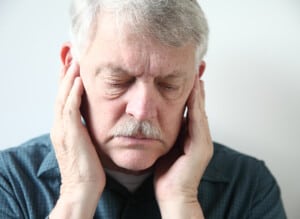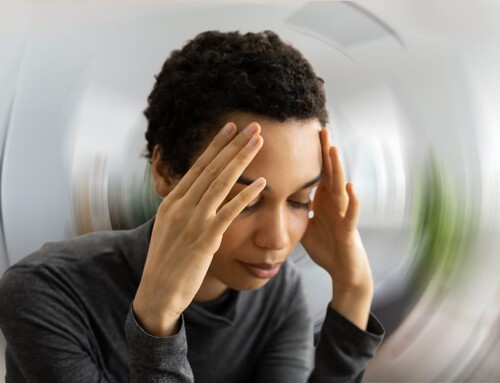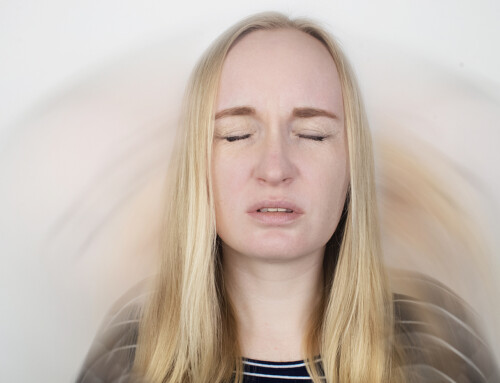Table of Contents
 Meniere’s disease is rare, with only over 600,000 people currently diagnosed in the USA. This condition, albeit rare, can happen to anyone. But it is more common in adults from 20 to 60 years old and can also happen to patients older than 65.
Meniere’s disease is rare, with only over 600,000 people currently diagnosed in the USA. This condition, albeit rare, can happen to anyone. But it is more common in adults from 20 to 60 years old and can also happen to patients older than 65.
While the leading cause of this disease remains unknown, there is some information gathered that can help you work around and safely navigate and manage this condition. You can also reach out to an Upper Cervical chiropractor in Honolulu if you feel a more targeted approach to address the pain and discomfort caused by Meniere’s disease. Meanwhile, if you think you or your elderly loved one is dealing with this condition, you may need to know these things:
1. Meniere’s disease is not life-threatening.
First, we’d like to ease your worries, especially if you recently got diagnosed with this condition. Meniere’s disease is not contagious, and it is not life-threatening or fatal. Instead, this is more of a chronic condition that brings a set of uncomfortable symptoms. However, some people develop Meniere’s disease with no chronic symptoms.
While the disease itself is not fatal, it can cause accidents and injuries that may be life-threatening. So it is recommended that you seek proper care as soon as possible to avoid these incidents. An Upper Cervical chiropractor in Honolulu can help you manage and eventually eliminate your symptoms, especially if it’s starting to interfere with your life.
2. Meniere’s disease can bring bouts of vertigo.
When your elderly loved one starts complaining about vertigo or dizziness a lot, you may need to pay closer attention to other symptoms that accompany them to differentiate it from common dizziness. Make them describe their dizziness and compare it to common vertigo symptoms. Usually, vertigo gives a false movement sensation even if they keep still. It can also make you feel like your surroundings are moving, spinning, or twisting. Sometimes it’s accompanied by balance problems, lightheadedness, or uncontrollable eye movement.
Regardless if it’s vertigo-related dizziness or from another cause, it’s best to settle in one spot and let the feeling pass before you continue with whatever you’re doing to avoid unwanted injuries and falls.
3. Meniere’s disease brings sensations to the ear.
If you experience pain or discomfort in the ear area, you might be experiencing the inner ear symptoms of Meniere’s disease. Pay attention if you experience ringing, roaring, or buzzing in the inner ear, loss of hearing on one side or sometimes both ears, or a feeling of fullness in the ear. To help you remember, keep a note about your symptoms on your phone or in a dedicated notebook and share them with your healthcare provider.
To learn more about the connection between head and neck injuries and vertigo download our complimentary e-book How to Naturally Relieve Vertigo without Drugs by clicking the image below.
4. Meniere’s disease may be challenging to manage in the elderly.
As you age, your body, including your organs and systems, age with you. Unfortunately, whether you like it or not, sometimes you cannot prevent your body’s wear and tear; in some cases, you will need to take maintenance medications to support your body in your day-to-day.
When you develop Meniere’s disease, sometimes it can bring challenges in managing your symptoms. For instance, you cannot easily take medications for your pain and discomfort as they may interfere with the efficacy of your usual medication.
Some medication options may bring side effects that you may not like, and you’ll have to find another one. It can be a long process, and you must work with your doctor to make sure you are not bringing more harm to yourself. It’s essential to manage your condition safely and efficiently.
Given this possible conflict, you may want to consider natural remedies and alternative care to manage your Meniere’s disease, including upper cervical chiropractic care.
5. Your upper cervical spine’s position may be connected to your Meniere’s disease.
This is not top of mind, but an Upper Cervical chiropractor in Honolulu has encountered patients with upper cervical spine misalignment complaining about symptoms similar to Meniere’s disease. Your top two spine bones (C1 and C2) protect your brainstem, which connects your brain with your spinal cord. If your C1 and C2 are misaligned, they put unnecessary stress and pressure on your brainstem. This stress causes messages sent to and from your brain to the rest of the body to become distorted. These distorted and false messages can cause the onset of Meniere’s disease symptoms.
How An Upper Cervical Chiropractor in Honolulu Can Help with Meniere’s Disease
Patients with Meniere’s disease can benefit from upper cervical care regardless of age. This specific chiropractic care is safe for patients of all ages, including the elderly. Correcting the alignment of your top two bones relaxes your craniofacial region. Eventually, the fluid drainage in your inner ear will improve. However, you will need a certified and reputable upper cervical chiropractor to do the procedure safely and gently.
Call Upper Cervical Hawaii
When you’re ready to say Aloha or help to pain-free days, call Dr. Joe Breuwet at 808-201-1324 to book your appointment. You may also use the online booking form to secure your schedule online. Dr. Breuwet has helped thousands of patients in Honolulu and nearby areas whose dealing with different health conditions because of a misalignment in their upper cervical spine.
He is trained specifically in the NUCCA technique, which he considers a precise form of chiropractic care. Dr. Breuwet followed his passion for providing natural care to patients in need. You are guaranteed to get a personalized care regimen that best fits your needs. You are sure to be well taken care of and safe under the care of a reputable Upper Cervical chiropractor in Honolulu, Dr. Breuwet.
To schedule a consultation call 808-201-1324 or simply click the button below.
 If you are outside of the local area you can find an Upper Cervical Doctor near you at www.uppercervicalawareness.com.
If you are outside of the local area you can find an Upper Cervical Doctor near you at www.uppercervicalawareness.com.





